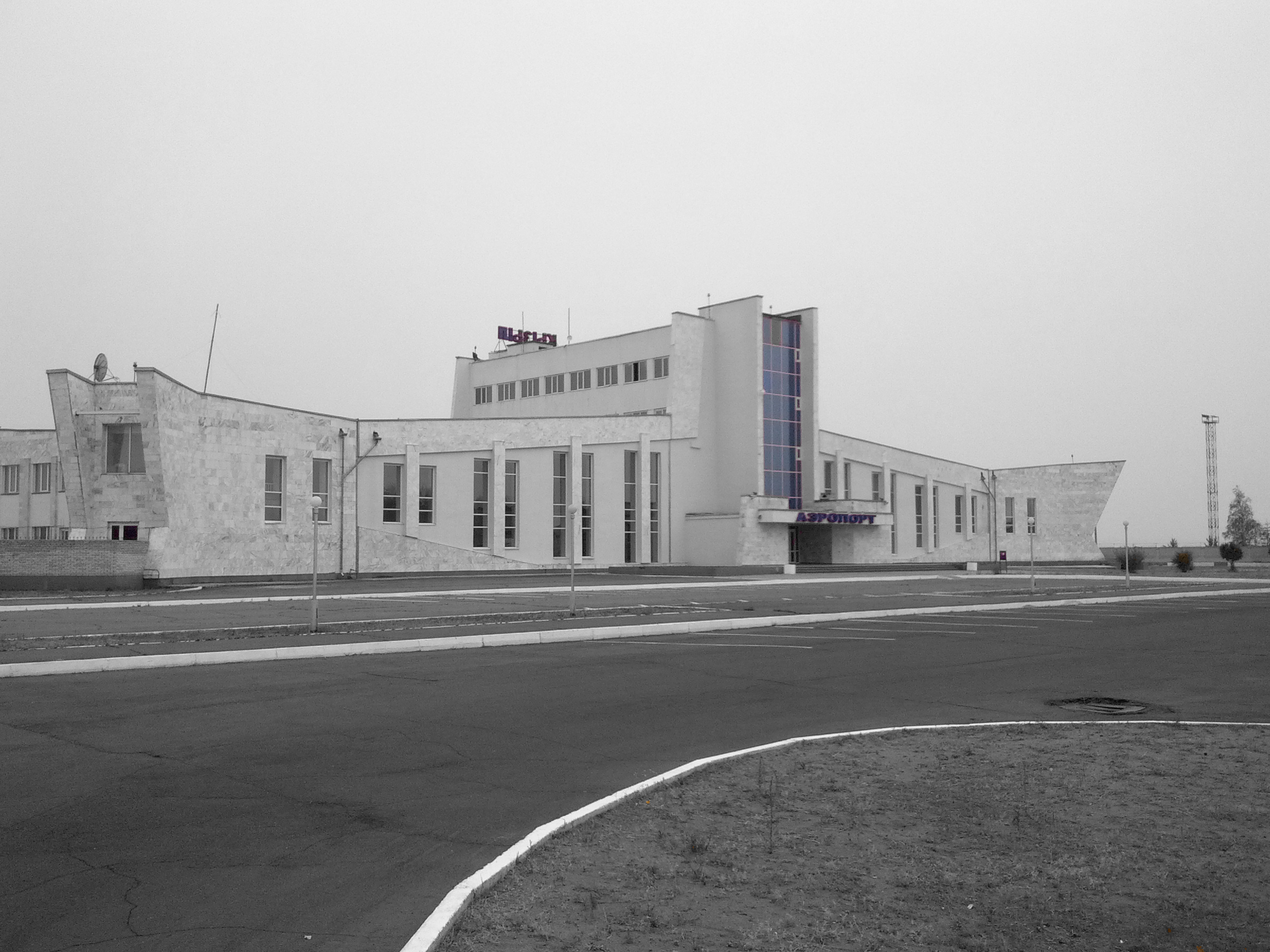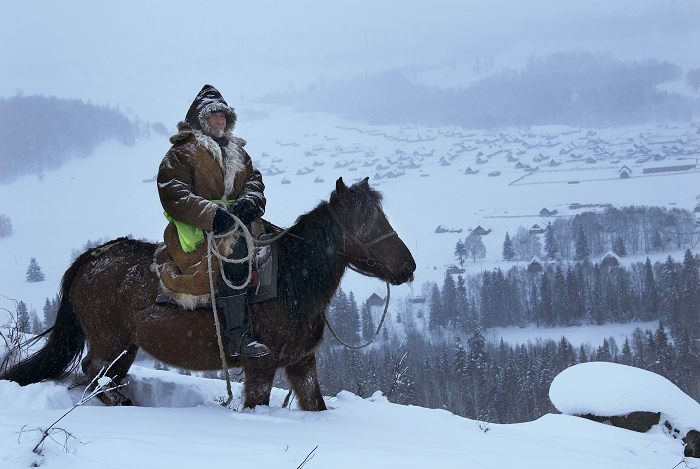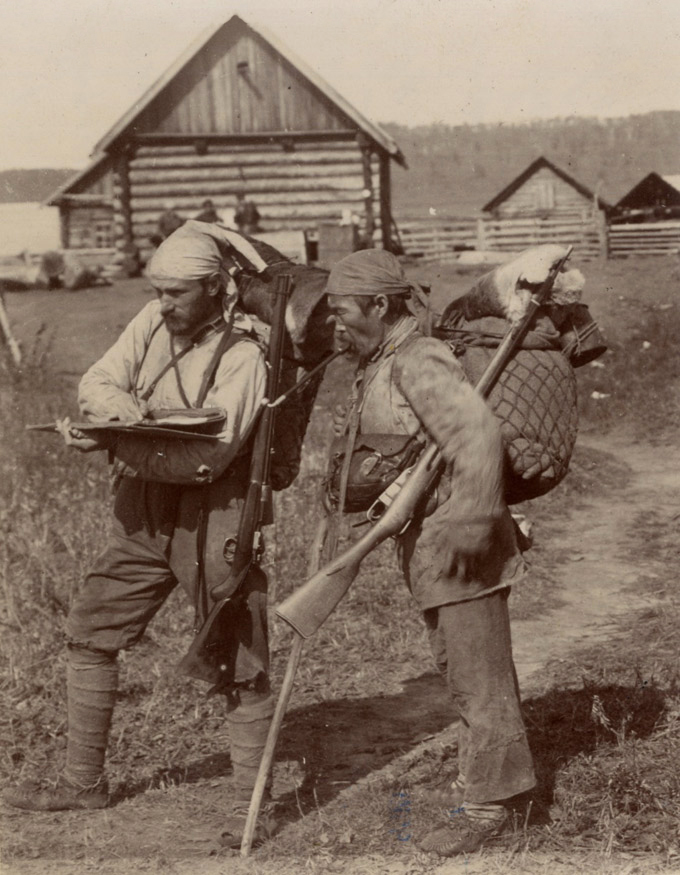|
Maxim Munzuk
Maxim Monguzhukovich Munzuk ( tyv, Максим Монгужук-оглу Мунзук; (2 May 1910 – 28 July 1999 in Kyzyl, Tyva, Russia) was a Tuvan actor, one of the founders of the Republic of Tuva's regional theatre. He is best known for playing the title role in Akira Kurosawa's film ''Dersu Uzala''. The versatile and creative Munzuk was an actor, director, singer, collector of musical folklore, composer, and teacher. Originally a musician in the military, Munzuk served as the commander of Tyva’s Artillery Regiment orchestra. He founded the Tuvan musical-drama theatre in the 1930s and played a huge number of roles of the most varied characters. Akira Kurosawa picked Munzuk as the lead in his Soviet-financed epic ''Dersu Uzala'' (1975), along with Yuri Solomin as writer-explorer Vladimir Arsenyev on whose 1923 book the film was based. Munzuk's impressive acting owed greatly to the film’s international success — the picture won the 1975 Academy Award as Best Foreign ... [...More Info...] [...Related Items...] OR: [Wikipedia] [Google] [Baidu] |
Kyzyl
Kyzyl (; Tuvan and russian: Кызыл; , ) is the capital city of the republic of Tuva, Russia. The name of the city means "red" or "crimson" in Tuvan (and in many other Turkic languages). Its population was History The city was founded in 1914 as Belotsarsk (russian: Белоцарск, link=no, ; " White Tsar's town"). In 1918, it was renamed Hem-Beldir ( tyv, Хем-Белдир, link=no, ). In 1926 it was given its present name. When the city was the capital of Tannu Tuva, it was named Kizil Khoto. In September 2014, Kyzyl celebrated its 100th anniversary as a city. The settlement was founded in 1914 by Russian settlers immediately after the entry of the then Uryanhai Territory under the protectorate of the Russian Empire called '' Belotsarsk ''. In 1918, in connection with the revolution and the antimonarchist movement, it was renamed to Khem-Beldyr, and in 1926 to Kyzyl ( Tuv .: ''red''). In 1921–1944, the city was the capital of Tuvan People's Republic, from 194 ... [...More Info...] [...Related Items...] OR: [Wikipedia] [Google] [Baidu] |
Siberiade
''Siberiade'' (russian: Сибириада, translit. ''Sibiriada'') is a 1979 Soviet historical drama film directed by Andrei Konchalovsky and produced by Mosfilm. The four-part epic spans much of the 20th century. Themes The film combines narrative elements from different traditions. Its first part tells of wondrous archetypical elements within the Russian culture, as connected to the pre-electrified epoch that is being narrated. Similarly, elements of the heroic epic are included within the part narrating the protagonist's involvement in World War II. Synopsis The story revolves around two feuding families, the Solomins and the Ustyuzhanins, who live in Yelan. The Solomins were relatively wealthy and the Ustyuzhanins poor. The film begins in 1904. Afanasy "Afonya" Ustyuzhanin is an aging man who spends all of his waking hours chopping a corduroy road "anywhere away from Yelan". His young child Nikolai "Kolya" Ustyuzhanin (b. 1897) must fend for himself by stealing fr ... [...More Info...] [...Related Items...] OR: [Wikipedia] [Google] [Baidu] |
People's Artists Of Russia
People's Artist of the Russian Federation (russian: Народный артист Российской Федерации, ''Narodnyy artist Rossiyskoy Federatsii''), also sometimes translated as National Artist of the Russian Federation, is an honorary and the highest title awarded to citizens of the Russian Federation, all outstanding in the performing arts, whose merits are exceptional in the sphere of the development of the performing arts (theatre, music, dance, circus, film, cinema, etc.). It succeeded both the all-Soviet Union "People's Artist of the USSR" award (Народный артист СССР), and more directly the local republic's "People's Artist of the RSFSR" award (Народный артист РСФСР), after the dissolution of the Soviet Union. Now, the status of the People's Artist of the Russian Federation has risen above that of the earlier RSFSR award. There are presently two levels to this award: * The lower Merited Artist of the Russian Federation, ... [...More Info...] [...Related Items...] OR: [Wikipedia] [Google] [Baidu] |
Russian Male Film Actors
Russian(s) refers to anything related to Russia, including: *Russians (, ''russkiye''), an ethnic group of the East Slavic peoples, primarily living in Russia and neighboring countries *Rossiyane (), Russian language term for all citizens and people of Russia, regardless of ethnicity *Russophone, Russian-speaking person (, ''russkogovoryashchy'', ''russkoyazychny'') *Russian language, the most widely spoken of the Slavic languages *Russian alphabet * Russian cuisine *Russian culture *Russian studies Russian may also refer to: *Russian dressing *''The Russians'', a book by Hedrick Smith *Russian (comics), fictional Marvel Comics supervillain from ''The Punisher'' series *Russian (solitaire), a card game * "Russians" (song), from the album ''The Dream of the Blue Turtles'' by Sting *"Russian", from the album ''Tubular Bells 2003'' by Mike Oldfield *"Russian", from the album '' '' by Caravan Palace *Nik Russian, the perpetrator of a con committed in 2002 *The South African name for a ... [...More Info...] [...Related Items...] OR: [Wikipedia] [Google] [Baidu] |
Tuvan People
The Tuvans ( tyv, Тывалар, Tıvalar) are a TurkicOtto Maenchen-Helfen, Journey to Tuva, p. 169 ethnic group indigenous to Siberia who live in Russia (Tuva), Mongolia, and China. They speak Tuvan, a Siberian Turkic language. They are also regarded in Mongolia as one of the Uriankhai peoples. Tuvans have historically been cattle-herding nomads, tending to herds of goats, sheep, camels, reindeer, cattle and yaks for the past thousands of years. They have traditionally lived in yurts covered by felt or chums, layered with birch bark or hide that they relocate seasonally as they move to newer pastures. Traditionally, the Tuvans were divided into nine regions called ''khoshuun'', namely the Tozhu, Salchak, Oyunnar, Khemchik, Khaasuut, Shalyk, Nibazy, Daavan and Choodu, and Beezi. The first four were ruled by Uriankhai Mongol princes, while the rest were administered by Borjigin Mongol princes. History Besides prehistoric rock-carvings to be found especially along the Yen ... [...More Info...] [...Related Items...] OR: [Wikipedia] [Google] [Baidu] |
People From Tuva
A person ( : people) is a being that has certain capacities or attributes such as reason, morality, consciousness or self-consciousness, and being a part of a culturally established form of social relations such as kinship, ownership of property, or legal responsibility. The defining features of personhood and, consequently, what makes a person count as a person, differ widely among cultures and contexts. In addition to the question of personhood, of what makes a being count as a person to begin with, there are further questions about personal identity and self: both about what makes any particular person that particular person instead of another, and about what makes a person at one time the same person as they were or will be at another time despite any intervening changes. The plural form "people" is often used to refer to an entire nation or ethnic group (as in "a people"), and this was the original meaning of the word; it subsequently acquired its use as a plural form of per ... [...More Info...] [...Related Items...] OR: [Wikipedia] [Google] [Baidu] |
1999 Deaths
File:1999 Events Collage.png, From left, clockwise: The funeral procession of King Hussein of Jordan in Amman; the 1999 İzmit earthquake kills over 17,000 people in Turkey; the Columbine High School massacre, one of the first major school shootings in the United States; the Year 2000 problem ("Y2K"), perceived as a major concern in the lead-up to the year 2000; the Millennium Dome opens in London; online music downloading platform Napster is launched, soon a source of online piracy; NASA loses both the Mars Climate Orbiter and the Mars Polar Lander; a destroyed T-55 tank near Prizren during the Kosovo War., 300x300px, thumb rect 0 0 200 200 Death and state funeral of King Hussein rect 200 0 400 200 1999 İzmit earthquake rect 400 0 600 200 Columbine High School massacre rect 0 200 300 400 Kosovo War rect 300 200 600 400 Year 2000 problem rect 0 400 200 600 Mars Climate Orbiter rect 200 400 400 600 Napster rect 400 400 600 600 Millennium Dome 1999 was designated as the ... [...More Info...] [...Related Items...] OR: [Wikipedia] [Google] [Baidu] |
1910 Births
Year 191 ( CXCI) was a common year starting on Friday (link will display the full calendar) of the Julian calendar. At the time, it was known as the Year of the Consulship of Apronianus and Bradua (or, less frequently, year 944 ''Ab urbe condita''). The denomination 191 for this year has been used since the early medieval period, when the Anno Domini calendar era became the prevalent method in Europe for naming years. Events By place Parthia * King Vologases IV of Parthia dies after a 44-year reign, and is succeeded by his son Vologases V. China * A coalition of Chinese warlords from the east of Hangu Pass launches a punitive campaign against the warlord Dong Zhuo, who seized control of the central government in 189, and held the figurehead Emperor Xian hostage. After suffering some defeats against the coalition forces, Dong Zhuo forcefully relocates the imperial capital from Luoyang to Chang'an. Before leaving, Dong Zhuo orders his troops to loot the tombs of the Ha ... [...More Info...] [...Related Items...] OR: [Wikipedia] [Google] [Baidu] |
People's Artist Of The RSFSR
People's Artist of the RSFSR (russian: Народный артист РСФСР, ''Narodnyj artist RSFSR'') was an honorary title granted to Soviet Union artists, including theatre and film directors, choreographers, music performers, and orchestra conductors, who had outstanding achievements in the arts, and who lived in the Russian Soviet Federative Socialist Republic (RSFSR). This title was one rank below Honored Artist of the RSFSR and one above People's Artist of the USSR. The title was introduced on 10 August 1931. In 1992, after the Russian SFSR was renamed as the Russian Federation, it was replaced with People's Artist of Russia. Miscellaneous This title is not to be confused with the title which is spelled in Russian ''Народный художник РСФСР'', and which was granted for achievements in the visual arts The visual arts are art forms such as painting, drawing, printmaking, sculpture, ceramics, photography, video, filmmaking, design, crafts and ... [...More Info...] [...Related Items...] OR: [Wikipedia] [Google] [Baidu] |
Tuvans
The Tuvans ( tyv, Тывалар, Tıvalar) are a TurkicOtto Maenchen-Helfen, Journey to Tuva, p. 169 ethnic group indigenous to Siberia who live in Russia (Tuva), Mongolia, and China. They speak Tuvan, a Siberian Turkic language. They are also regarded in Mongolia as one of the Uriankhai peoples. Tuvans have historically been cattle-herding nomads, tending to herds of goats, sheep, camels, reindeer, cattle and yaks for the past thousands of years. They have traditionally lived in yurts covered by felt or chums, layered with birch bark or hide that they relocate seasonally as they move to newer pastures. Traditionally, the Tuvans were divided into nine regions called ''khoshuun'', namely the Tozhu, Salchak, Oyunnar, Khemchik, Khaasuut, Shalyk, Nibazy, Daavan and Choodu, and Beezi. The first four were ruled by Uriankhai Mongol princes, while the rest were administered by Borjigin Mongol princes. History Besides prehistoric rock-carvings to be found especially along the Ye ... [...More Info...] [...Related Items...] OR: [Wikipedia] [Google] [Baidu] |
Dersu Uzala (book)
''Dersu Uzala'' (russian: Дерсу Узала; alternate U.S. titles: ''With Dersu the Hunter'' and ''Dersu the Trapper'') is a 1923 memoir by the Russian explorer Vladimir Arsenyev, concerning his travels in the Russian Far East with the Goldi hunter Dersu Uzala. The story was made into a 1975 film ''Dersu Uzala'', directed by Akira Kurosawa. Plot Arsenyev tells of his travels in the Ussuri basin in the Russian Far East. Dersu Uzala (c. 1849–1908) was a Goldi hunter who acted as a guide for Arsenyev's surveying crew mapping the taiga from 1902 to 1907 and saved them from starvation and cold. Arsenyev portrays him as a simple yet great man, an animist who sees animals and plants as equal to man. From 1907, Arsenyev invited Dersu to live in his house in Khabarovsk as Dersu's failing sight hampered his ability to live as a hunter. In the spring of 1908, Dersu bade farewell to Arsenyev and walked back toward his home in the woods of the Primorsky Krai; he was killed befo ... [...More Info...] [...Related Items...] OR: [Wikipedia] [Google] [Baidu] |
Vladimir Arsenyev
Vladimir Klavdiyevich Arsenyev, (russian: Влади́мир Кла́вдиевич Арсе́ньев; 10 September 1872 – 4 September 1930) was a Russian explorer of the Far East who recounted his travels in a series of books — "По Уссурийскому Краю" ("Along the Ussuri land") (1921) and "Дерсу Узала" ("Dersu Uzala") (1923) — telling of his military journeys to the Ussuri basin with Dersu Uzala, a native hunter, from 1902 to 1907. He was the first to describe numerous species of Siberian flora and the lifestyles of native ethnic peoples. Early life Arseniev was born in St. Petersburg, Russian Empire. His father, born a serf, became the chief of the Moscow District Railway. After a military education, Arseniev began his expeditions to the forests of the Far East. He lived in Vladivostok through the years of the Russian Civil War and was a Commissar for Ethnic Minorities (Komisar po delam inrodcheskim) of the independent Far Eastern Republi ... [...More Info...] [...Related Items...] OR: [Wikipedia] [Google] [Baidu] |


_1938.jpg)




